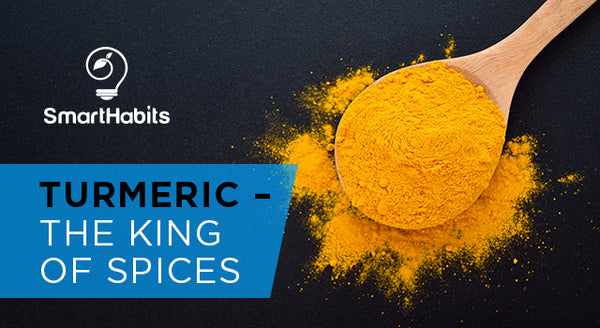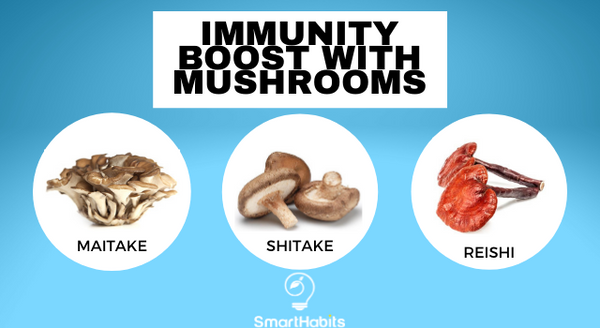Medicinal mushrooms have become a recent craze in the alternative medicine realm. However, they have been used for thousands of years in countries such as China. Their medicinal properties range from immune-boosting to cancer-fighting, to brain health, which has made them a staple in Traditional Chinese Medicine for centuries.
One mushroom, in particular, has caught the public's interest. If you saw this mushroom, you would notice it looks like a large mass of white tendrils - which gives it the variety of names it goes by including "monkey head," "White Beard, "and "Old Man's Beard." The USA it is most commonly referred to as "Lion's Mane."
Lion's Mane can be used in a number of health conditions. The most intriguing aspect of Lion's Mane is its profound effect on brain health. Many health and wellness savvy individuals are interested in Lion's Mane as a nootropic and as a prevention for neurodegenerative diseases.
What is a Nootropic?
The term nootropic is used to describe supplements or substances the can help improve the brain's functioning - especially in memory, creativity, and thought processes. Nootropics are especially popular in today's world where students and employees have high academic and performance expectations placed on them and wish to function at their optimal mental ability.
Lion's Mane has been used for thousands of years in China and is becoming a hot topic in the United States - and for a good reason.
Lion's Mane for Brain Health: An Inside Look
Lion's Mane works through several mechanisms to support brain health. It has been shown in research to have high antioxidant activity which can help protect the brain against damage, as well as promote the regeneration of neurons. Research also supports that this mushroom can help manage blood sugar levels in people with diabetes and therefore protect against the damage caused by high blood sugar levels.
How Lion's Mane Works in the Brain
Lion's Mane positively affects brain health in several ways. First, it is through its antioxidant properties.
Lion's Mane and Antioxidants
Lion's Mane contains several antioxidants, including phenolic compounds, beta-glucans, and lipopolysaccharides. In animal studies, these constituents have been shown to increase glutathione, our master antioxidant, as well as quench reactive oxygen species.
Antioxidants are an essential factor in brain health because reactive oxygen species, when left unchecked, cause physical damage to neurons and brain structures. This is referred to as oxidative damage. When neurons are damaged, they are unable to function optimally, which can then lead to neurodegeneration conditions. This results in symptoms such as a decrease in memory, changes in mood, and poorer cognition.
Oxidative damage is responsible, at least in part, for many brain diseases such as Alzheimer's disease and dementia. Therefore, ensuring there are enough antioxidants available, such as those in Lion's Mane may be helpful in preventing oxidative damage to your brain and avoiding age-related cognitive decline.
In addition to its antioxidant properties, Lion's Mane also supports brain regeneration.
Lion's Mane and Brain Regeneration
Nerve Growth Factor
Lion's Mane contains the constituents Hericenones and Erinacines, which are neuroprotective, meaning they protect the brain against damage. They protect the brain by crossing the blood-brain barrier, where they directly increase nerve growth factor (NGF).
NGF is a protein which promotes nerve growth and prevents nerve death. You could think of NGF as a switch that turns on neuron production and turns off neuron destruction. NGF also supports memory formation and the general optimal functioning of neurons.
In neurodegenerative diseases, such as Alzheimer's disease, supporting NGF is a possible therapeutic approach to prevent and possibly reverse the damage to the brain. Currently, the drugs available for Alzheimer's are not sufficient for most people. Therefore new approaches, such as Lion's Mane, may have a pivotal role in treating this devastating disease.
Recent research studies on elderly humans with cognitive decline show significant improvements in their memory and cognition function tests after being treated with Lion's Mane.
In healthy people, increasing NGF may help prevent damage to neurons, and therefore maintaining cognitive health. Those who wish to optimize their mental ability could benefit from keeping the NGF "switch" turned on, promoting new neuron development.
In short, supporting NGF through Lion's Mane supplementation is of interest to the younger population who strive to achieve peak mental performance as well as the elderly who wish to prevent age-related cognitive decline.
Neuron Myelination
Each bundle of neurons in the brain is covered with a fatty layer, called a myelin sheath. Its purpose is to help neurons transmit information to facilitate communication to other areas of the brain. This is an integral part of how the brain processes information, forms memories and controls the body.
Diseases such as multiple sclerosis (MS) cause this myelin sheath to break down, which then causes numerous neurological symptoms. Symptoms of MS include urinary symptoms, vision issues, and trouble with gait and walking.
Research has shown that Lion's Mane can regenerate the myelination of neurons. This means, it helps to restore proper communication between neurons, and therefore improves brain functioning. Although this area of research warrants further investigation, these results are very promising as there are no other treatments that have been shown to remyelinate neurons!
Blood Sugar
Most people don't think of blood sugar issues when thinking about the conditions of the brain. However, managing blood sugar is an essential aspect of brain health. Alzheimer's is being viewed as "Diabetes Type 3," which means it is a condition created by consistency high levels of blood sugar.
High blood sugar is damaging to blood vessels, including the blood vessels in your brain. Also, high blood sugar levels lead to higher levels of inflammation and therefore, more oxidative damage in the brain.
Clinical studies have shown that taking Lion's Mane can help diabetic patients lower their blood sugar levels. Of course, changing dietary habits and engaging in exercise are invaluable in managing blood sugar levels as well.
We couldn't have a post on Lion's Mane without mentioning its profound effect on immunity as well as cancer.
Immunity and Cancer
One of the most abundant components of this mushroom is polysaccharides. These are complex starch structures which are known for their immune-stimulating and anti-cancer abilities. They have shown to increase certain immune cells, including TNF-a, natural killer (NK) cells, lymphocytes, and CD4+ cells. Preliminary research shows Lion's Mane may be useful in treating certain types of cancer, including esophageal cancer, intestinal cancer, pancreatic cancers, and stomach cancers. What's more, Lion's Mane does not cause adverse side effects like conventional cancer treatments can. The potential of Lion's Mane in cancer care is high, and scientists continue to look into how this magical mushroom can be utilized.
Final Thoughts on Lion's Mane
Although Lion's Mane has been used for thousands of years in China, Americans have just begun taking an interest in this medicinal mushroom. In research, Lion's Mane has been shown to have excellent nootropic ability, including protecting the brain against oxidation and high blood sugar levels as well as promoting new neuron growth through NGF. These promising research results show Lion's Mane is proving itself to have a place in brain health for both the young and elderly population.
Sources Used:
Hericium erinaceus,an amazing medicinal mushroom
Hericium erinaceus: an edible mushroom with medicinal values
Type 3 Diabetes and Alzheimer’s Disease: What You Need to Know
Statements made on this website have not been evaluated by the U.S. Food and Drug Administration. Information provided by this website or this company is not a substitute for direct, individual medical treatment or advice. It is the responsibility of you and your healthcare providers to make all decisions regarding your health. SmartHabits recommends that you consult with your healthcare providers regarding the diagnosis and treatment of any disease or condition. Products sold on this website are not intended to diagnose, treat, cure, or prevent any disease.




